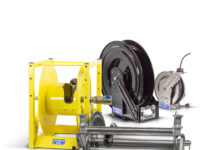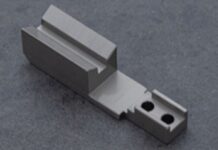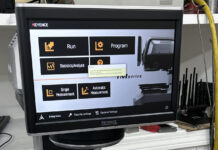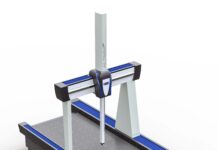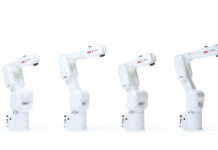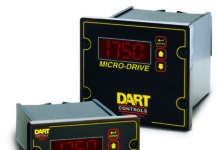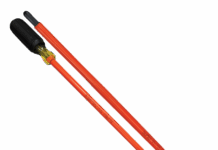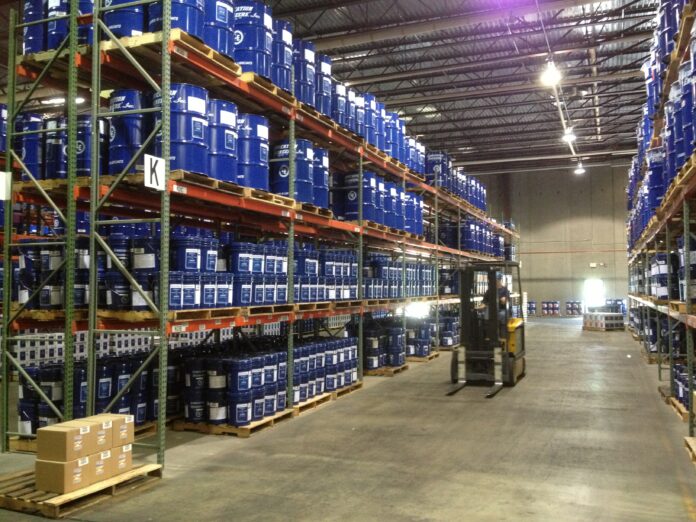What does it mean for Lubrication Engineers to be “a one-stop shop for lubrication reliability?” Tell me more about that and what sets this company and its products apart from its competitors.
Grimes: What sets us apart is our holistic approach with lubrication programs. You can purchase the best lubricant in the world, but if you do not take care of it and keep it clean, dry and contaminant-free, it will fail. A good lubrication program can extend the longevity of the lubricant, protect the equipment, and increase uptime. In addition to the right lubricants for the applications and a host of reliability products for taking care of them, LE has boots on the ground to help plants around the world stand up their lubrication programs.
Calk: Plants striving to achieve lubrication excellence demand products and services from their suppliers to support their asset optimization and reliability programs. Understanding the criticality of these initiatives and the impact they have on asset lifecycle, quality, efficiency, and profitability, we strive to provide the highest quality products and services to exceed our customers’ expectations. Our portfolio allows our customers to get most of their lubrication reliability products from one supplier, rather than needing a procurement team to set up multiple vendors.
What role does lubrication reliability play in overall system reliability for manufacturers and maintenance teams?
Grimes: The cost of the lubricant is a very small part of the overall cost of running an operation; however, it can have a dramatic impact on the performance and longevity of the equipment. It ends up being a large, often overlooked area that can provide a great wealth of benefits to any organization.
Calk: Lubrication reliability impacts all facets of the maintenance budget and is critical to operational efficiency. When lubrication reliability is not at the forefront as a maintenance strategy, it will negatively affect other cost centers, including annual lubricant expenditures, reactive labor, capital cost, spares, machinery unavailability, and downtime. When overall operational efficiency is not achieved, quality, production and profits will decline.
Tell me about your in-house and in-the-field training opportunities.
Grimes: Training instills an appreciation of the importance of lubrication and its role in helping equipment run properly. It helps create an understanding of the lubricant’s function and the surrounding forces that can impact it. We offer virtual and in-person training for those who want to become knowledgeable and certified in machinery lubrication. It is a natural first step for teams to become empowered and be able to move their programs forward.
Calk: The biggest investment any organization makes is its employees. The higher the level of training a company provides its employees, the higher the net return they realize on this investment. We offer a broad body of training from lubricant fundamentals and reliability to asset management and rotating equipment. We deliver this training for our employees and customers through a variety of means, such as online and in-person classes, virtual presentations, printed collateral, web, and on-the-job training. We have learned over the past 70-plus years that the best customers are the ones who are open to learning and willing to pursue continuous training.
What type of R&D projects are y’all working on at the moment?
Grimes: Due to the volatility of the lubricant supply chain the past few years, our efforts have been spent looking at suppliers around the world to make sure we have redundancy built into our lubricant formulas, ensuring that we can keep producing without interruption and without sacrificing quality.
Let’s talk about products. Which new products is Lubrication Engineers offering? Tell me all about them and what makes them the best option for manufacturers and industry members.
Grimes: We are excited about partnering with Easy Bar to bring to market this year a solid lubricant bar that incorporates some of our proprietary knowledge to elevate kiln and dryer protection to a new level.
Last year we launched the Xport Ultra Lubricator, a fully automatic single point lubricator that is independent of temperature and counter pressure and offers precise discharge. It is suited to applications that demand high lubrication rates and where long remote grease lines are necessary to ensure safe access.
Our comprehensive enclosed gear oil line continues to be highly popular for its ability to protect and extend the life of gearboxes while extending drains. We offer several different high-performance gear oils – including Duolec, Almasol, H1 Quinplex, Multilec, and Monolec varieties – all formulated to meet the needs of specific types of applications.
Due to their performance characteristics, greases featuring calcium sulfonate complexes as thickener are gaining a lot of interest from our customers. Among these characteristics are inherent prevention of rust and corrosion, exceptional water resistance, inherent extreme pressure properties, very high dropping point, excellent mechanical stability, and very low oil bleed. Like our other products, our three calcium sulfonate complex greases – Monocal, Almamoly, and H1 Quincal – are formulated to meet the needs of specific applications.
Can you give me an example of how the company stepped in to help clients in crisis with their lubrication and reliability needs and what the solution was?
Grimes: After 4 p.m. on a recent Saturday afternoon, one of our lubricant consultants received a call from a long-time customer in Pennsylvania in desperate need of four drums of our gear oil for a new $1 million gearbox that had just been installed and was set to start running that Monday. The OEM had given them the wrong fill volume information, and they needed the oil by Monday morning. The consultant contacted our customer service manager for assistance. One of our warehouse managers went to our Tennessee warehouse to pull the drums, and our traffic manager found a driver to pick them up. All on a Saturday afternoon and evening. This is an example of the type of relationships we have with our customers and the extraordinary efforts we go through to make sure they get what they need.
A large regional brewing company with four air compressors was seeking to reduce costs by extending drain intervals and asset life. After switching to our Multilec Industrial Oil and using oil analysis to monitor oil condition, they were able to extend drain intervals up to eight times the OEM recommendation. In less than a year, they saved $71,000 in replacement oil cost and eliminated 273 gallons of waste oil. Fewer oil changes also meant less downtime, maintenance and labor.
An oilfield services company on the north slope of Prudhoe Bay, Alaska, owns 20 John Deere Rolligons, each custom-made to the tune of roughly $2 million each and used for transporting drill rigs to remote sites. Each Rolligon has 12 baghouse tires and 24 spherical roller bearings. Extreme conditions were causing more than 100 bearing failures per year. Switching to our Almaplex Ultra-Syn Lubricant reduced roller bearing failures by 73% and helped the company save approximately $196,200 per year.
How was the company and its clients affected by the COVID-19 pandemic, and what does business look like now that we’re getting back to normal life?
Grimes: Maybe it was luck and maybe it was great planning or a little bit of both. We had the infrastructure and culture in place to quickly adopt a work-from-home culture. COVID hit and our employees left the office and our consultants got creative to keep customer projects and products flowing. We also stocked up on lots of inventory to make sure we could keep supplying customers with little to no interruption. The lubricant industry is a community of great people, very connected, with many companies working together to make sure customers’ needs were met. This has been a challenging period for all of us with price increases, supply chain delays and interruptions, but I think we are all starting to see some light at the end of the long tunnel.
What’s on the horizon for Lubrication Engineers moving forward?
Grimes: We continue to invest in the business with great people, products, capital, and infrastructure. We believe by investing now we will be even more prepared to help our customers meet the unknown challenges and demands of the future. We have been practicing a steady stream of creative destruction internally and working on our continuous improvement culture. We want to make sure we are ready to continue helping customers across the globe with their toughest lubricant challenges.





